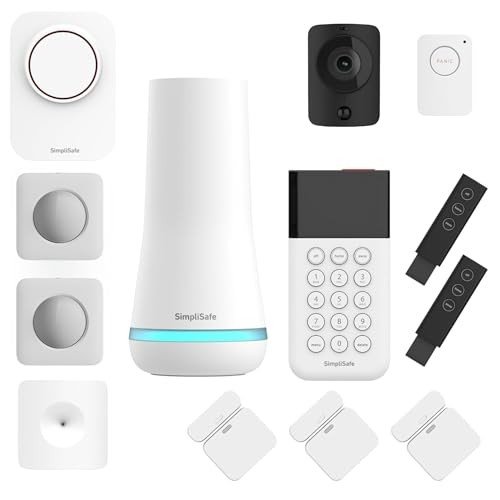A Buy Energy-Efficient Lighting UK Success Story You'll Never Believe
Buy Energy-Efficient Lighting in the UK: A Comprehensive Guide
Recently, the seriousness of transitioning to more sustainable habits has actually led many consumers and services to make conscious decisions about their energy consumption. One of the most impactful ways to reduce energy expenses and carbon emissions is by going with energy-efficient lighting. This short article aims to notify readers about the advantages of energy-efficient lighting, types offered in the UK market, and pointers for making a choice.
Understanding Energy-Efficient Lighting
Energy-efficient lighting refers to lights that consume less electricity while supplying the same level of lighting as traditional lighting options. This decrease in energy use comes from developments in technology, which have made it possible for the development of lighting solutions that not just conserve energy but are likewise more durable and versatile.
Advantages of Energy-Efficient Lighting
Expense Savings: Lower energy expenses make energy-efficient lighting an appealing choice for both households and organizations. They might involve a greater initial financial investment, however their durability and decreased energy usage result in substantial cost savings over time.
Ecological Impact: By using less electrical energy, energy-efficient lights contribute to lower greenhouse gas emissions. content from fossil fuels for electrical power generation makes a substantial distinction in mitigating climate modification.
Improved Light Quality: Modern energy-efficient lighting, especially LED and CFL, offers brighter, more constant light than older technologies like incandescent bulbs.
Types of Energy-Efficient Lighting
When exploring energy-efficient choices, consumers can choose from different innovations. Here are some common types discovered in the UK:
Type
Energy Usage
Lifespan
Qualities
LED (Light Emitting Diode)
Very low
15,000 – 50,000 hours
Instant-on, dimmable choices available, high light quality
CFL (Compact Fluorescent Lamp)
Low
7,000 – 15,000 hours
More energy-efficient than incandescent, but may take time to reach full brightness
Halogen Bulbs
Moderate
2,000 – 4,000 hours
Improved effectiveness compared to traditional incandescent; releases a warm light
Smart Bulbs
Differs based on use
15,000 hours
Connects to smart home systems; programmable and energy trackers
This range invites customers to make educated choices tailored to their needs.
How to Choose Energy-Efficient Lighting
Choosing the ideal energy-efficient lighting can appear daunting due to the numerous options available. To simplify the decision-making process, potential buyers should think about the list below aspects:
Purpose of Lighting: Identify the main use of the lighting (e.g., ambient light, task lighting, or accent lighting) to identify the appropriate type and strength of light.
Lumens vs. Watts: Understand that lumens indicate brightness while watts measure energy usage. The objective is to make the most of lumens while minimizing wattage.
Color Temperature: Lighting can be found in different color temperatures, expressed in Kelvin (K). Think about the preferred ambiance:
- Warm White (2700K) for comfortable locations
- Cool White (4000K) for work areas
- Daytime (5000K+) for vibrant settings
Dimming Capabilities: If choosing LED or CFL lighting, make sure that the fixtures and bulbs work with dimmer switches if that is a requirement for the space.
Accreditation Labels: Look for energy efficiency labels such as the Energy Saving Trust label or EU Energy Label, which indicate compliance with energy use standards.
Where to Buy Energy-Efficient Lighting in the UK
Customers in the UK can purchase energy-efficient lighting from different sellers. Some popular alternatives consist of:
- Online Retailers: Websites such as Amazon, eBay, and expert lighting websites frequently have a wide choice and competitive prices.
- Home Improvement Stores: Chains like B&Q, Wickes, and Homebase offer in-store assistance for consumers to make informed options.
- Electrical Suppliers: Stores that concentrate on electrical items can supply professional recommendations tailored to particular requirements, especially for industrial buyers.
FAQs about Energy-Efficient Lighting
Are energy-efficient bulbs actually worth the investment?
- Yes, while the upfront expense may be greater compared to traditional bulbs, their longevity and lower energy usage deal significant savings in the long run.
Do energy-efficient bulbs take time to reach complete brightness?
- Some types, like CFLs, may take a couple of moments to heat up, while LEDs provide immediate bright light.
Can I utilize energy-efficient bulbs in existing fixtures?
- The majority of energy-efficient bulbs can be utilized in standard fixtures, however always check compatibility, particularly with dimmer switches.
What environmental advantages can I expect from utilizing energy-efficient lighting?
- Minimized energy intake causes a lower need for electricity, which decreases greenhouse gas emissions, hence having a favorable effect on environment modification.
Changing to energy-efficient lighting not just helps to decrease electricity expenses but likewise adds to a greener planet. By comprehending the types offered, understanding what to try to find when making a purchase, and checking out trustworthy providers, UK customers can make educated choices that line up with their requirements. This small change can lead to significant advantages for both their home or company and the environment.
Final Thoughts
As consumers become significantly knowledgeable about their environmental footprint, the switch to energy-efficient lighting is a crucial action. By accepting these innovations, individuals and businesses in the UK boost their sustainability efforts while enjoying the benefits of modern lighting solutions.
